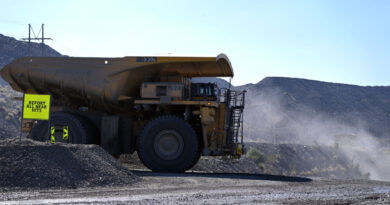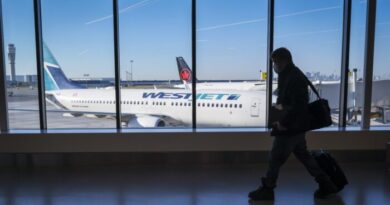Budget Allocation for 2025: Close to $7 Million Allocated to Safeguard Agriculture Exports in Response to Concerns Over Trump Tariffs.
The government announced that the investment will ensure job security for regional and remote communities dependent on agriculture.
The Australian Labor government has allocated $6.8 million (US$4.3 million) in the 2025-26 budget to support the agriculture sector in maintaining its export markets.
This move comes amidst concerns that the Trump administration might extend tariffs to Australian agricultural products.
As per the recently released regional ministerial budget statement, the $6.8 million funding will be utilized in facilitating and safeguarding international market access for agricultural goods.
Furthermore, it will be used for initiatives to advocate for Australia’s agricultural interests and cover expenses related to Australia’s participation in multilateral standard-setting bodies to promote free and fair trade practices.
“These functions contribute to the stability of Australia’s international agricultural trade standing in an increasingly uncertain geopolitical and international trading landscape.”
The investment is expected to offer job security to regional and remote communities reliant on agriculture.
Additionally, $23.8 million will be allocated for regional trade events to promote innovation and investment in agriculture, fisheries, and forestry sectors, and $3.5 million will be used to develop a new National Food Security Strategy.
Trump Tariff Fear
On March 3, U.S. President Donald Trump announced plans to impose tariffs on “external” agricultural products starting from April 2 to safeguard U.S. farmers’ interests.
However, details on the tariff percentage and impacted products are not provided by the president.
It remains uncertain if these agriculture tariffs will be part of reciprocal tariffs on U.S. trading partners.
This uncertainty has raised concerns that Australia’s agriculture sector could be the next target of U.S. tariffs following the steel and aluminum industries, which were subjected to a 25% tariff.
Trade Minister Don Farrell emphasized that while the U.S. is not the primary export market for Australian beef, tariffs would significantly impact the local industry.
He pointed out that a beef tariff would raise the prices of McDonald’s burgers in the U.S.
“The significance, of course, to the United States regarding our beef exports is that the majority of it goes into McDonald’s hamburgers,” Farrell explained to Sky News.
“And if you increase the price of these beef exports by 25% or 10% or any other figure, you essentially increase the price of hamburgers in the United States.
It simply doesn’t make sense.”

Beef products seen in a supermarket in Albany, Western Australia, on July 6, 2024. Susan Mortimer/The Epoch Times
Trade Minister Advises Caution
Amid mounting concerns, the trade minister urged people not to overreact to announcements from the United States.
He stated, “We have had a longstanding and positive relationship with the United States.”
“While things have started to change in recent weeks and months, the mutual goodwill between us and the Americans is still evident,” he informed ABC News.
Farrell mentioned his recent fruitful conversation with his U.S. counterpart, highlighting Australia’s significance to the American economy.
“We have approximately $100 billion in trade. We import $70 billion worth of goods from them and export $30 billion worth of products to them,” he explained.
“So, we question them, why would you impose tariffs on a country with whom you have a trade surplus?”
Farrell assured that the government will continue engaging with senior levels of the Trump administration to comprehend their expectations from the trade partnership.





